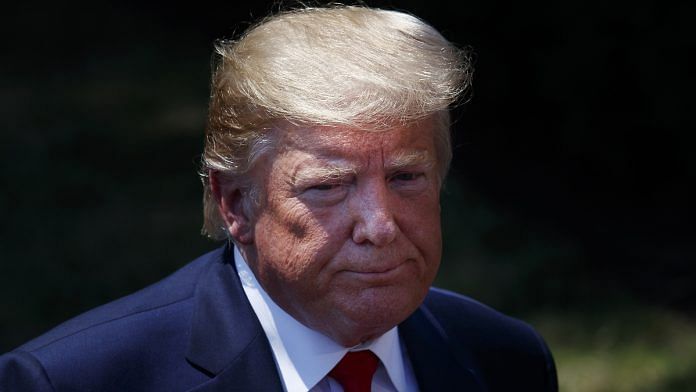
New York: Arab nations dialed back criticism of Donald Trump’s Middle East peace plan and proposed a more moderate resolution that called for a Palestinian state based on the 1967 borders, but no longer condemned the U.S. proposal directly.
Tunisia, which represents Arab countries on the United Nations Security Council, circulated a revised resolution over the weekend along with Indonesia.
The proposal emphasizes “respect” for the territorial integrity of the Palestinian territories, while calling Israeli settlements in the West Bank and east Jerusalem “illegal,” according to a copy of the text seen by Bloomberg News.
The resolution may be put to a vote Tuesday, when Palestinian President Mahmoud Abbas is expected to speak to the Security Council, diplomats familiar with the matter said.
The toned-down text comes after Arab countries advanced a resolution last week that directly condemned Trump’s plan, arguing that it breached international law.
Following the text’s circulation, Tunisia’s UN Ambassador Moncef Baati, who introduced the pro-Palestinian resolution, was abruptly recalled and dismissed, leaving UN envoys in New York rattled.
The latest draft — which diplomats expect to be vetoed by the U.S. but supported by European countries — follows a visit last week by Trump senior adviser Jared Kushner. Over a two-hour lunch, Trump’s son-in-law sought to convince diplomats to buy into his vision of Middle East peace.
Several ambassadors noted during the lunch that the proposal had failed to evoke any interest by the Palestinians in coming to the negotiating table, casting doubt on its viability.
Trump Proposal
Trump’s proposal, announced as he stood alongside Prime Minister Benjamin Netanyahu last month, would recognize Israel’s sovereignty over all Jewish settlements and the Jordan Valley.
Netanyahu, who’s under indictment and lagging in the polls after failing twice to form a government last year, initially interpreted the plan as a green light to immediately begin annexing those territories. He’s since backpedaled.
The latest resolution circulated over the weekend “stresses that the annexation of any part of the Occupied Palestinian Territory, including East Jerusalem, constitutes a breach of international law, undermines the viability of the two-State solution and challenges the prospects for just, comprehensive and lasting peace.”
To pass, a resolution needs nine votes in support and no vetoes by the five permanent members, which include the U.K., France, Russia, the U.S. and China. A vetoed resolution would then likely go to the UN General Assembly, which is made up of all UN members. There, its odds of being approved are much higher but passage would largely be symbolic.-Bloomberg
Also read: Trump’s plan for Israel and Palestinians won’t bring peace

COMMENTS